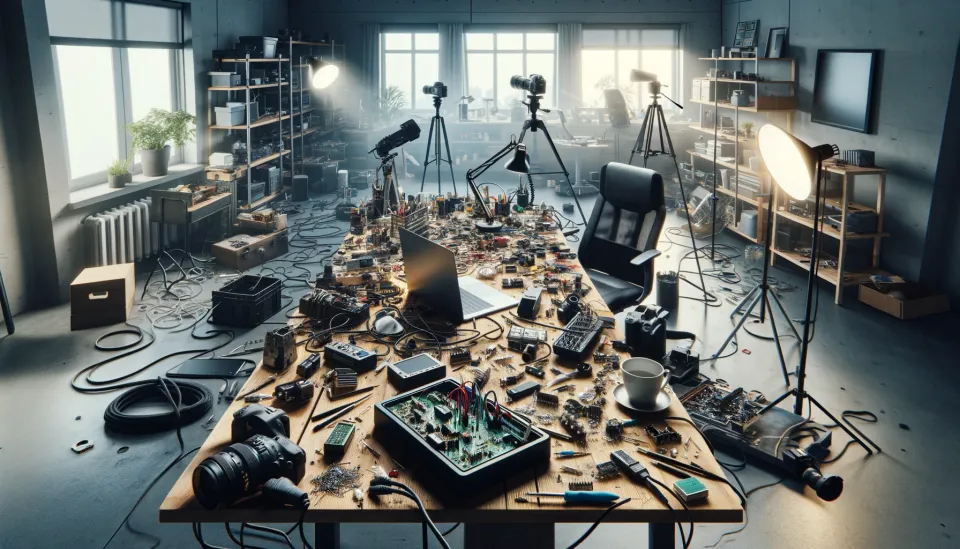Clean up after yourself

I have a problem: I leave too many browser tabs open.
I'm sure you can relate.
I recently came across a thought provoking article called browser tab hygiene. The core idea was:
you should be okay with browser tabs being lost at any time.
This was a big perspective shift for me, as I am a tab hoarder - leveraging various 'saved tab groups' solutions. The thing is... I rarely ever go back to those saved tabs. So, what is the point of saving them?
In thinking about this, I realized the core issue: I don't have a good system for cleaning up after myself. By saving the tabs, I avoid making a decision about what to actually DO with them. But by not making decisions, I keep adding them to an ever growing backlog.
But the real kicker is when I make the worst decision deferral of all... leaving the tabs and windows open.
The problem
I have found that if I am greeted by a bunch of open browser windows when I sit down to work in the morning, I have the darnedest time sticking to my plan for the day. I inevitably get distracted with shiny object syndrome. Since I tend to work on immediate reward versus delayed reward tasks, I tend to switch context to whatever I encounter in those left-open windows, since they typically contain an interesting idea or project I was working on - or as David Allen would say, an "open loop."
The problem is - those leftover projects are typically not what I had intended on tackling for the day.
The same is true for my physical environment. When I have my soldering iron; a camera on a tripod; a few cables strewn about that need to be fixed; and bunches of memory cards on the desk... I am so tempted to jump into that project.
Why? Because designing your environment works! This is something I gleaned from Atomic Habits and Scott Adams, which I will write about further in the future. But as a quick summary: when my bass guitar is sitting out, I want to practice. When wires and my soldering iron are sitting out, I want to solder. And when youtube videos are left open, I want to watch!
With this being the case, if I want to be successful in completing the tasks I set out to complete for the day via my Next Actions, then I need to clean up after myself. So I am not tempted to work on the wrong things. Because there is nothing in my physical or digital space pulling at my attention!
Resistance
There is an internal resistance to this idea I encounter though. And it sounds something like this:
"but... cleaning up and then re-setting up all of that stuff will take a lot of time! Wouldn't it be more efficient to just leave it all up so you don't have to re-set it all up next time?
My younger, naive self might have fallen for that. But now I am older and wiser, and have lost WEEKS and likely MONTHS of productive hours to tangents caused by messes.
The experiment
Going back to my physicist roots, I decided to run an experiment.
How long does it actually take to clean up? Specifically, that camera and tripod sitting in my way?
So I fired up a timer and put it all away. How long did it take?
57 seconds.
For everything. Collapsing the tripod. Taking camera off the mount plate. Tripod in the closet. Camera in the bag. Bag in the closet.
57 seconds.
Less than one minute of active work likely gained me hours THAT DAY of productive time.
In terms of time assets vs time debts (coming soon) - cleaning up is a time asset instead of a debt. Yes, it takes a bit of time to clean. But the key to put this into perspective is this:
measure the time gained by not being distracted instead of the time taken to clean
This one experiment proved to me that I need to reset my internal feeler gauge around this balance. Intuitively I thought it would be more weighted towards the side of taking longer to clean. But in reality, it is the very much opposite.
Member discussion